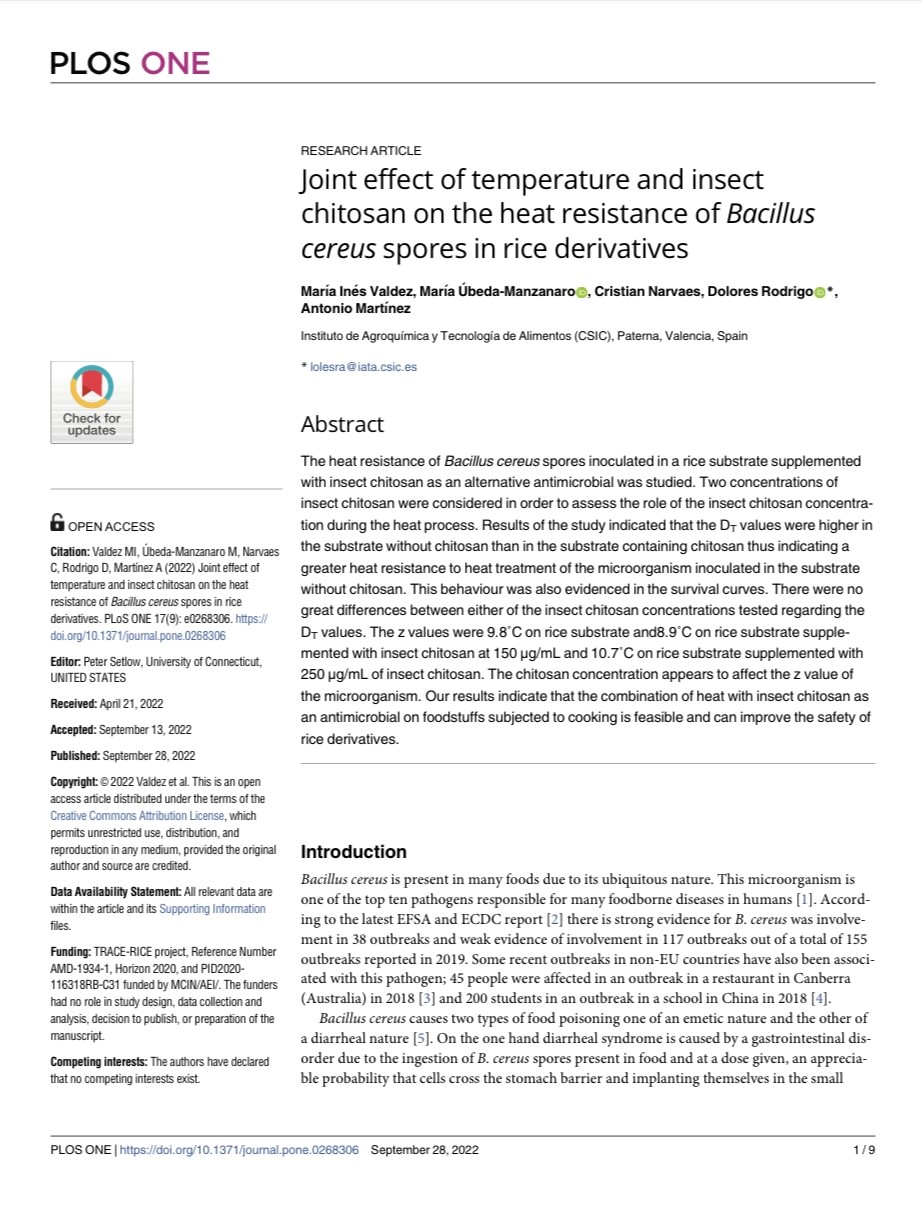New manuscript related to IATA tasks in WP2
The heat resistance of Bacillus cereus spores inoculated in a rice substrate supplemented with insect chitosan as an alternative antimicrobial was studied. Two concentrations of insect chitosan were considered in order to assess the role of the insect chitosan concentration during the heat process. Results of the study indicated that the DT values were higher in the substrate without chitosan than in the substrate containing chitosan thus indicating a greater heat resistance to heat treatment of the microorganism inoculated in the substrate without chitosan. This behaviour was also evidenced in the survival curves. There were no great differences between either of the insect chitosan concentrations tested regarding the DT values. The z values were 9.8˚C on rice substrate and8.9˚C on rice substrate supplemented with insect chitosan at 150 μg/mL and 10.7˚C on rice substrate supplemented with 250 μg/mL of insect chitosan. The chitosan concentration appears to affect the z value of the microorganism. Our results indicate that the combination of heat with insect chitosan as an antimicrobial on foodstuffs subjected to cooking is feasible and can improve the safety of rice derivatives.


